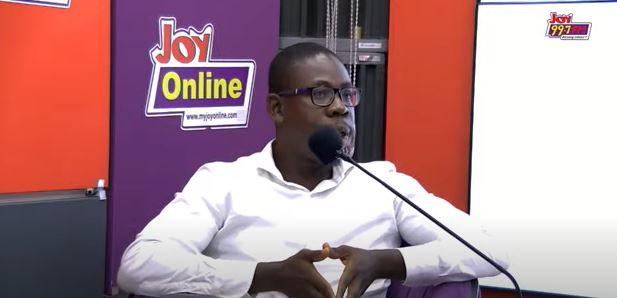An Associate Professor of Finance at the University of Ghana Business School, Elikplimi Komla Agbloyor, has highlighted a number of factors that have consistently driven the country to the International Monetary Fund (IMF).
According to him, high unemployment and high lending interest rates are among the key factors driving the country to the IMF on a regular basis.
He was speaking on Joy FM’s Super Morning Show, in relation to the country’s decision to seek an IMF bailout.
Government has been blaming the current development on the Covid-19 pandemic and the Russia-Ukraine war.
The Professor, who has developed a module that helps to predict whether or not a country will go to the IMF, says otherwise.
According to him, Ghana's economic woes predate the Russian-Ukraine war and the outbreak of the Covid-19 pandemic.
"We were likely to go to the IMF again as far back as 2017," he stressed.
He acknowledged that the Russia-Ukraine war and the Covid-19, have contributed immensely to the decision, however, the propensity of the country to seek support from the IMF prior to the war was very high due to the aforementioned factors.
“The module identifies traditional factors such as the debt ratio, exchange rate, level of domestic savings, are key predicting factors dragging the country to the IMF,” he added.
That notwithstanding, he called for prudent measures to be adopted to avert the situation.
He believes one way to do that is by changing the structure of Ghana’s economy.
He noted that Ghana can actualise its dream of becoming a wealthy country by changing the structure of the economy, rather than seeking an IMF bailout.
“For me what the IMF programme does for us is to provide for us some space and time to be able to put our house in order. So that gives us time in the short to medium term to be able to implement the necessary policies to ensure that the economy is stronger,” he said on Joy FM’s Super Morning Show.
He was contributing to discussions that centered on the country’s decision to seek an IMF bailout as part of measures to cushion the economy, and how the country can do away with this development.
During the discourse which also sought to provide solutions to the country’s endless economic woes, he emphasised that until Ghana is able to change the structure of the economy, the country will continue to frequent the IMF.
Latest Stories
-
Let’s live peacefully and shame our saboteurs – Savannah executives of NPP, NDC
25 mins -
Reconstruction of Agona-Nkwanta-Tarkwa road 80 per cent complete
33 mins -
Internet penetration: 10.7 million Ghanaians offline – LONDA Report
41 mins -
USC cancels grad ceremony as campus protests against Israel’s war in Gaza continue
45 mins -
Harvey Weinstein’s 2020 rape conviction overturned in New York
52 mins -
US Supreme Court divided on whether Trump can be prosecuted
55 mins -
There’s enough justification for Affirmative Action Bill to be passed – Minka-Premo
57 mins -
Don’t allow people to manipulate you into vaccine hesitancy – Dr Adipa-Adappoe
1 hour -
Suspend implementation of Planting for Food and Jobs 2.0 for 2024 – Stakeholders
1 hour -
Parkinson’s disease no longer confined to the elderly – Public Health Physician, Dr Momodou Cham warns
1 hour -
Persons living with Parkinson’s disease appeal for support as they face stigmatization
1 hour -
36-year-old-trader sentenced for stealing employer’s money
2 hours -
9 signs you’re falling in love with someone who thoroughly enjoys emotional manipulation
2 hours -
Catholic Diocese of Keta Akatsi hosts Parkinson’s support group meeting
2 hours -
Wa Naa appeals to Akufo-Addo to audit state lands in Wa
2 hours

